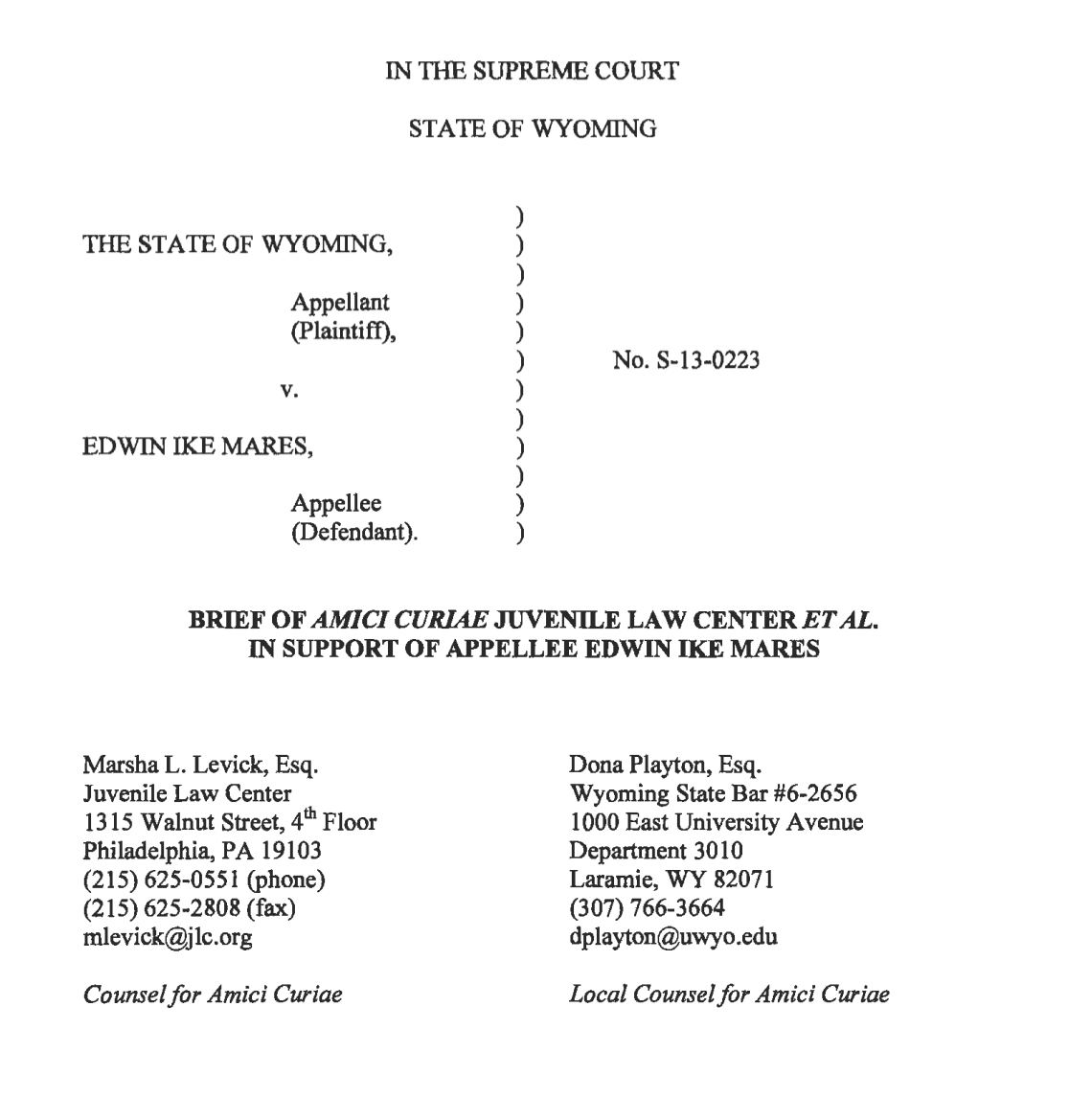
Summary of Argument
In Miller v. Alabama, 132 S. Ct. 2455 (2012), the United States Supreme Court held that the mandatory imposition of life without parole sentences on juvenile offenders is unconstitutional. Instead, Miller requires that a sentencer make an individualized determination of the juvenile's level of culpability, taking into account the unique characteristics associated with his young age. When Appellee was convicted of first- degree felony murder for an offense he committed as a juvenile, he received a mandatory life without parole sentence which, pursuant to Miller, is unconstitutional. The Wyoming legislature's attempt to cure this constitutional defect by providing parole review after twenty-five years is insufficient because it fails to provide an individualized sentencing hearing - even though certain juvenile offenders may be denied the opportunity for parole review altogether. Because Miller requires an individualized sentencing hearing before a juvenile offender receives a life without parole sentence, this sentencing scheme is unconstitutional.
The parties agree that Appellee Mares, and others similarly situated, benefit from Wyoming's new legislation even though his conviction was final before the Miller decision and before the legislation was enacted. To the extent this Court still needs to resolve the question, Miller applies retroactively to Appellee and to other cases that have become final after the expiration of the period for direct review, for four primary reasons. First, the United States Supreme Court has already applied Miller retroactively by affording relief in Kuntrell Jackson's case, which was before the Court on collateral review. Second, Miller announced a substantive rule, which pursuant to Supreme Court precedent applies retroactively. Third, Miller is a watershed rule of criminal procedure that applies retroactively. Finally, Miller must be applied retroactively because, once the Court determines that a punishment is cruel and unusual when imposed on a child, any continuing imposition of that sentence is itself a violation of the Eighth Amendment; an arbitrary date on the calendar cannot deem a sentence constitutional which the United States Supreme Court has now declared cruel and unusual punishment.